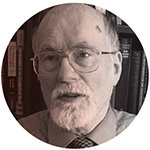A good question: What happens when I die? - Reform Magazine
Each month we ask one question and get four answers. This month: What happens when I die?

PAULA GOODER
‘The New Testament is both very clear and very vague’
The New Testament is both very clear and very vague about what happens when we die. It is clear about our ultimate fate but, frustratingly, much less clear about our immediate fate.
What I mean by this is that Paul, along with many of the New Testament writers, believed in the resurrection of the body into the new creation. The place where Paul talked about this extensively and carefully was 1 Corinthians 15. The Corinthians, it appears, did not believe in life after death. Although Paul does not say so explicitly, it is very likely that they – along with many Greeks of their era – believed in the transmigration of the soul (something that looks a little like modern views of reincarnation).
In 1 Corinthians 15, Paul went out of his way to stress how essential believing in your own resurrection is to Christian belief. In short, his argument was that Jesus’ resurrection was the first fruits of all resurrection. If we do not believe that we will be raised, then we are saying that Jesus was not raised. If we say that Jesus was not raised, then our faith is in vain. In other words, for Paul, believing in our own resurrection is one of the load-bearing walls of faith. The rest of 1 Corinthians 15 asks questions about what our resurrection bodies will be like and how they will contrast with the bodies we have now…
Paula Gooder is a theologian whose books include Heaven (SPCK, 2011)
___
 MARTIN CAMROUX
MARTIN CAMROUX
‘I don’t have a clue what might be beyond death’
“Death”, the distinguished Catholic theologian Karl Rahner said, “is the absurd arch-contradiction of existence.” According to Shakespeare: “Life’s a poor player that struts and frets his hour upon the stage and then is heard no more.” Woody Allen said: “I don’t want to achieve immortality through my art. I want to achieve it by not dying.” William Saroyan said: “Of course, everybody has to die, but I thought an exception would be made in my case.”
There are some things we know about death – that our physical body no longer functions, for instance. Our brain and heart and sight and personality and self-awareness and all that makes us unique comes to an end. But the things that we know are as nothing compared to the things we don’t. We try to fill in the gaps with thoughts of immortality, that the body is one thing, but the soul is another altogether, and just slips away and continues elsewhere. Behind this is the idea that death is nothing at all, that perhaps there is “unbroken continuity” as that absurd nonsense so often read at funerals asserts. Personally, I have spent enough time with the dying to say with some confidence that, to the contrary, death is very real indeed, and enough time with the grieving to know the pain of loss. When his son, Benjamin, died at the age seven, Ben Jonson wrote: “Farewell, thou child of my right hand, and joy; / My sinne was too much hope of thee, lov’d boy.” The words “lov’d boy” catch the reality of anguish of death and loss; they move me to tears…
Martin Camroux is chair of the Free to Believe network and a retired church minister

MATT STONE
‘We will experience an eternity beyond our wildest imaginings’
Quoting Isaiah, Paul writes: “No eye has seen, no ear has heard, no mind has conceived what God has prepared for those who love him” (1 Corinthians 2:9). I could therefore answer the question honestly and quickly by saying: “I don’t know.” However, although I might not know the exact details of what will happen after I die, Paul does goes on to say that God has revealed what awaits us, and the Bible gives us a picture with a number of broad brushstrokes.
The first brushstroke is what Jesus said about eternal life for those who believe in him: The Father and the Son have this eternal life, and through the Son, we too can receive it – an incorruptible relationship with God that begins now and which cannot be severed by death. This is the “life in all its fullness” Jesus speaks of, saying that once we receive this gift, we can never be snatched from God’s hand. As Paul declares, not even death can separate us from God’s love in Jesus.
The second brushstroke is the Resurrection of Jesus. I believe in life after death because Jesus defeated death. But what will our resurrection be like? I believe that like Jesus, we will have a body which is both physical and spiritual. Like Jesus, we will have a bodily form, but it will be new and different. Jesus could eat fish, but he could also walk through walls. People saw that Jesus was Jesus – and he had the scars to prove it – but he wasn’t immediately recognisable. Like Paul, I believe that we will be changed in the “twinkling of an eye” and clothed with immortality…
Matt Stone is minister of Herringthorpe United Reformed Church, Rotherham
___
 ANJUM ANWAR
ANJUM ANWAR
‘Our deeds will be the deciding factor in where we go next’
“Every soul shall have a taste of death: and only on the Day of Judgement shall you be paid your full recompense.” (Qur̕an 3:185) As a Muslim, I believe that life and death belong to God alone; how, when and where I will die is known only to God. My life in this world is but temporary, and how I conduct myself in it will be the deciding factor in what happens to me in the hereafter. God alone has that ultimate knowledge and I, as a Muslim, do not worry too much about death, although I do worry that I may not have lived the high standards imposed by my faith.
When death comes, it is said that angel Israel takes the soul from the body. The body is nothing but a shell which houses the soul for a given period of time. We will all return to God and be gathered and presented with all our good and not-so-good deeds that we have committed during our earthly life. Our deeds will be the deciding factor in where we go next, but this is only known to God. To be honest, I prefer not to know, do the best to keep on the right path, and leave the rest to the will of God. Maybe this is easier!..
Anjum Anwar is dialogue development officer for Blackburn Cathedral
___
This is an extract from the June 2015 edition of Reform.















Submit a Comment